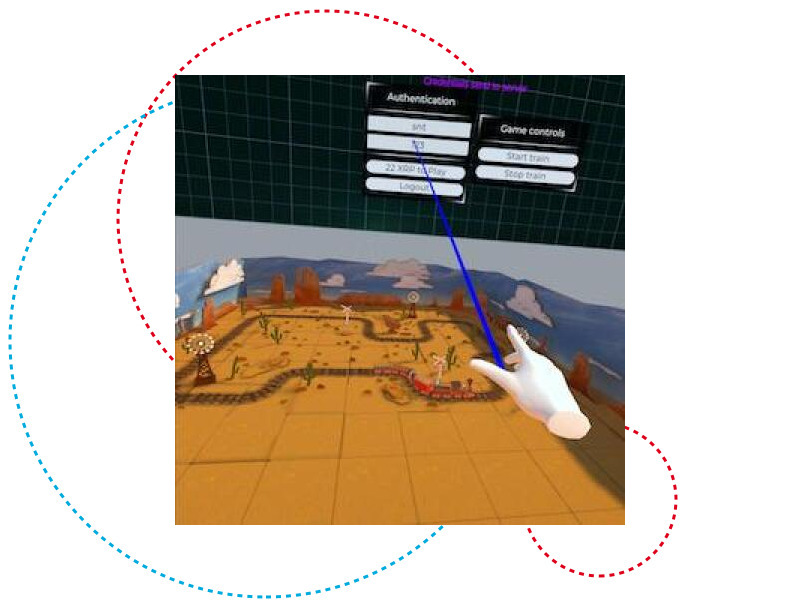In countless offices worldwide, a new world is taking shape: the metaverse. Beyond the buzz, this virtual universe is being built as we speak, with environments that feel very immersive and real, and that will expand our online experiences. If the internet has taught us anything, it’s that online environments can change our lives. It is only fair to assume that a virtual reality has an even bigger potential to do so.
As in any brand-new system, everything in this new universe is being defined from the ground up. Being in a virtual reality means that everything, from the underlying logic for moving and interacting with others to new feedback systems for our senses, needs to be designed from scratch. On a more practical level, that also includes payment systems, as interactions in the metaverse may sometimes involve commercial transactions. But taking off a VR headset, effectively leaving the metaverse, to get a physical credit card would lead to a terrible user experience.
“How do you build something when you can’t use your usual tools? That is the question that we sought to answer,” said Prof. Radu State, head of the Services and Data Management (SEDAN) research group at SnT. Prof. State is the principal investigator of a project on designing a payment system in the metaverse, as part of Ripple’s University Blockchain Research Initiative (UBRI). The research team comprises, in addition to Prof. State, software developer Ilias Sviatko and doctoral researcher Vytautas Tumas.
The team worked on creating a backend system that would allow users to pay in the metaverse using crypto tokens from their digital wallets. In particular, by clicking on a dedicated icon, the users could easily launch a holographic keypad to insert their pin codes. This way, the newly developed payment system avoids interrupting an immersive experience to complete a purchase. What’s more, the SnT team could leverage their expertise in developing secure payment systems for crypto tokens. In fact, exactly as in the real world, any payment system in the metaverse needs to be secure, and include identification methods, such as multi-factor authentication.
The project builds on Prof. State’s research group work on Ripple’s PayString system, an open-source payment identifier poised to change the way developers implement payment systems in their digital architecture. Back in 2020, the SnT team won first place in the PayString hackathon as they tackled the privacy flaws of the system.
This time, the researchers came up with the idea while working on the security and reliability aspects of the digital ledger in partnership with Ripple. “It was a chance for our researchers to apply what they learnt in working on security in DLT to build something completely new. Even more, due to its nature, the project lends itself to be demoed, which we could do in front of the industry,” explained Prof. State. “This had important tech transfer implications, as it built a concrete bridge between academia and industry. What’s more, the payment system we created can be linked to other forms of payment, too; it doesn’t just work with crypto tokens,” he added.
The SnT team demoed the metaverse payment system at Ripple’s UBRI Connect event in September 2022, where it attracted the attention of the audience. Maybe it’s only a matter of time before we, too, get to use it in our metaverse adventures.
Disclaimer: the information provided on this website does not constitute investment advice, financial advice, trading advice, or any other sort of advice and you should not treat any of the website’s content as such. The Interdisciplinary Centre for Security, Reliability and Trust (SnT) does not recommend that any cryptocurrency should be bought, sold, or held by you.
